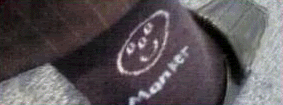The discovery of a new planet in our Solar System could have an unintended consequence - the elimination of Pluto in the list of planets everyone has in their heads. Is it time to wave this distant, dark piece of rock farewell?
To the casual observer, the announcement that scientists have identified a tenth planet orbiting the Sun is primarily of importance to few people other than science teachers and schoolchildren.
But, on closer examination, the revelation may have more far-reaching consequences for the way in which we think about space.
At around 3,000km across, 2003 UB313 - as it has been named - is the largest object found in our Solar System since the discovery of Neptune in 1846.
And it is thought to be larger than Pluto, whose status as the furthest planet from the Sun has been enshrined in accepted thought since it was identified in 1930.
But this could all change.
Technological advances have enabled astronomers to find more minor planets, stars, asteroids and comets.
And in the late 1960s scientists found that Pluto's size had been over-estimated.
It was first thought to be around as large as Earth, whereas accepted thought now suggests that the planet's mass is only around a fifth of the moon's.
"Today, the world knows that Pluto is not unique. There are other Plutos, just farther out in the Solar System where they are a little harder to find," says David Rabinowitz of Yale University, who was among the astronomers who discovered 2003 UB313 two years ago.
His point is echoed by Professor Mark Bailey, director of Armagh Observatory in Northern Ireland.
"Increasingly, objects are far away and there are objects which are of comparable size to Pluto, so if you think of Pluto as a planet then you should refer to those objects as planets," he says.
He estimates that there could be tens of thousands of objects beyond Neptune in the Solar System region known as the Kuiper belt, many of which may be larger than Pluto.
The discovery of 2003 UB313 comes soon after it was announced that 2003 EL61 had been found.
And a number of distant objects around the same size of Pluto have been found in recent years, including Quaoar (found in 2002) and Sedna (detected in 2004).
It is widely accepted that the struggle to provide an adequate definition of a planet is the crux of the problem.
"Originally a planet was a wandering star. Then it was something that moved across the sky. Then it was something that revolved around the Sun. The criterion about when it should be called a planet is something that is changing over time," says Prof Bailey.
"I'm sure we will continue to discover more and more objects of comparable size which will continue to challenge established thought about planets."
'Size does matter'
Dr Brian Marsden, director of the International Astronomy Union's minor planet centre, believes the simplest way to resolve the confusion is to reject Pluto's claim to being a planet on the grounds that "size does matter".
Instead he says people should accept that "we have eight planets and only an object bigger than Mars could be considered to be a planet in the future".
He argues that the disruption that would be caused to accepted thought would, ultimately, provide a more accurate understanding of space.
"School text books concentrate too much on the idea that Pluto is the ninth planet. Teaching should stress that there are hundreds of thousands of much smaller objects. Knowing a mnemonic and naming the planets is not science."
But not everyone believes science has the right, or influence to turn accepted thought on its head.
"Our culture has fully embraced the idea that Pluto is a planet and scientists have for the most part not yet realised that the term planet no longer belongs to them," says Michael Brown, one of the astronomers who discovered 2003 UB313.
His conclusion is simple: "From now on, everyone should ignore the distracting debates of the scientists. Planets in our solar system should be defined not by some attempt at forcing a scientific definition on a thousands-of-years-old cultural term, but by simply embracing culture. Pluto is a planet because culture says it is.
"It is understandably hard for scientists to let go of a word that they think they use scientifically, but they need to."
He considers 2003 UB313 to be a planet in a "cultural" and "historical" sense, adding: "I will not argue that it is a scientific planet because there is no good scientific definition which fits our solar system and our culture and I have decided to let culture win this one.
"We scientists can continue our debates, but I hope we are generally ignored."
Do you think they saw this coming...







 Do you think they saw this coming...
Do you think they saw this coming... 

 Reply With Quote
Reply With Quote











Bookmarks